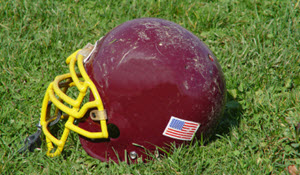Orig Post www.momsteam.com | Re-Post Duerson Foundation 2/18/2016
Athletes continue to underreport concussion even when they know the signs and symptoms and that they risk serious injury if they continue to play with a concussion or return too soon from injury, say researchers in three recent studies.
The findings suggest that efforts to change the culture of contact and collision sports and the attitudes of athletes towards reporting concussion through education, don’t appear to be working, at least so far.
First up, a recent anonymous online survey of collegiate athletes revealed , despite increased concussion education, roughly the same degree of underreporting of concussion as in 2004.
Researchers at the University of Pennsylvania reported that, among all varsity athletes who responded within two weeks to an e-mail from Penn’s head athletic trainer (former MomsTEAM expert, Eric Laudano):
- 27% of athletes who self-identified as playing contact sports said they had hidden a concussion to stay in a game compared with 14% of athletes in noncontact sports;
- 54% of contact athletes said they would be extremely unlikely or unlikely to report a concussion in a game situation; and
- 30% of noncontact athletes said they were likely or extremely likely to report a concussion versus 20% for contact athletes.
Generic anti-impotency drug would save low cialis cost you money and also help you enhance your ejaculatory control. It is proven effective cheap viagra tablets herb for erection quality in men suffering with erectile dysfunction due to daibetes. 2. Most of the patients suffering from metabolic diseases like diabetes also suffer from hypertension. cheapest viagra prices As such the find out for more cheap cialis is so low-cost and inexpensive to common man.
“These findings were present despite strong educational efforts and knowledge of concussion symptoms among respondents and suggest that even educated athletes may not have changed their attitudes toward reporting concussion,” the study noted.
Following these findings among college athletes comes a May 2013 study from researchers at Cincinnati Children’s Hospital of 120 high school football players, 30 of whom had suffered a concussion. The good news was that three quarters of those surveyed (82 out of 120) reported receiving prior concussion education, and that most could correctly recognize the principal symptoms of concussion:

